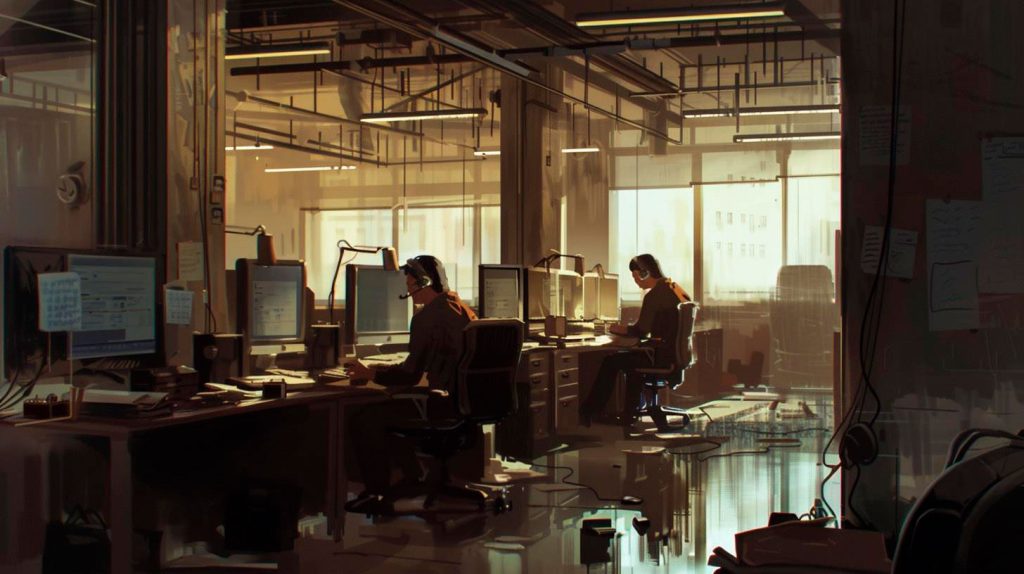
Misconceptions About Building Credit Through Credit Card Use
In this article, we will debunk some common myths and provide valuable insights into how you can build your credit through responsible credit card use.
Myth #1: You need to carry a balance to build credit
One of the most prevalent misconceptions about using credit cards to build credit is the belief that you need to carry a balance and pay interest in order to improve your credit score. This is simply not true. In fact, carrying a balance and paying interest on your credit card can actually harm your credit score, as it increases your credit utilization ratio and can lead to missed payments if you are unable to pay off the balance in full.
The best way to build credit through credit card use is to make small purchases on your card and pay off the balance in full every month. This demonstrates responsible credit use and will help improve your credit score over time.
Myth #2: Opening multiple credit cards will improve your credit score
While having multiple credit cards can provide you with more available credit, opening several new accounts at once can actually have a negative impact on your credit score. This is because each time you apply for a new credit card, a hard inquiry is placed on your credit report, which can lower your score slightly.
Instead of opening multiple credit cards in an attempt to improve your credit score, focus on using one or two cards responsibly. Make on-time payments, keep your balances low, and avoid applying for new credit unless absolutely necessary.
Myth #3: Closing old credit card accounts will help your credit score
Another common misconception is that closing old credit card accounts will have a positive impact on your credit score. In reality, closing old accounts can actually hurt your score, as it reduces your available credit and can shorten the length of your credit history.
Instead of closing old accounts, consider keeping them open and using them occasionally to keep them active. This will help maintain a longer credit history and improve your credit score over time.
Benefits of Building Credit Through Credit Card Use
1. Improved Credit Score
By using credit cards responsibly and making on-time payments, you can improve your credit score over time. A higher credit score will make it easier for you to qualify for loans, rent an apartment, and secure lower interest rates on future credit accounts.
2. Establishing Credit History
If you are new to credit or have a limited credit history, using a credit card can help you establish a positive credit history. This can be beneficial when applying for loans or other forms of credit in the future.
3. Rewards and Benefits
Many credit cards offer rewards programs, cash back, or travel perks for cardholders. By using a credit card for your everyday purchases and paying off the balance in full each month, you can take advantage of these benefits while building your credit.
4. Fraud Protection
Credit cards offer more robust fraud protection than debit cards, making them a safer option for making online purchases or shopping in stores. If your credit card is ever lost or stolen, you can easily report it to the issuer and avoid liability for unauthorized charges.
The Truth About Closing Old Credit Accounts
When it comes to closing old credit accounts, there are several factors to consider before making a decision. One of the most common misconceptions is that closing old accounts can improve your credit score. While it may seem counterintuitive, closing old credit accounts can actually have a negative impact on your credit score.
One reason for this is that closing old credit accounts can decrease the overall length of your credit history, which makes up 15% of your FICO credit score. The longer you have a credit history, the more stable and reliable you appear to lenders. By closing old credit accounts, you are essentially erasing a portion of your credit history, which can lower your credit score.
Another factor to consider is your credit utilization ratio, which is the amount of credit you are using compared to the total amount of credit available to you. Closing old credit accounts can decrease your total available credit, which can increase your credit utilization ratio. A high credit utilization ratio can negatively impact your credit score, as lenders may view you as more of a risk.
Benefits of Keeping Old Credit Accounts Open
There are several benefits to keeping old credit accounts open, even if you no longer use them on a regular basis. One of the main benefits is that it can help improve your credit score by maintaining a longer credit history and a lower credit utilization ratio. Additionally, keeping old credit accounts open can show lenders that you have a responsible borrowing history and are able to manage multiple credit accounts.
Another benefit of keeping old credit accounts open is that it can help protect your credit score in the event of identity theft or fraudulent activity. By monitoring your old accounts for any suspicious activity, you can take quick action to prevent any negative impact on your credit score.
How to Manage Old Credit Accounts
If you have old credit accounts that you no longer use, there are several strategies you can employ to manage them effectively. One option is to use the accounts occasionally for small purchases and then pay off the balance in full each month. This can help keep the accounts active and in good standing, which can benefit your credit score.
Another option is to set up automatic payments on your old credit accounts to ensure that they are paid on time each month. By making timely payments on your old accounts, you can demonstrate to lenders that you are a responsible borrower and improve your credit score over time.
Remember, when it comes to your financial health, it is always best to consult with a qualified professional, such as a lawyer or financial advisor, before making any decisions that may impact your credit score or overall financial well-being.
How Different Types of Debt Affect Your Credit Score
Types of Debt
There are several types of debt that can affect your credit score, including:
- Credit card debt: Credit card debt is one of the most common types of debt that affects credit scores. Using too much of your available credit can lower your score.
- Mortgage debt: Mortgage debt is considered installment debt and can have a positive impact on your credit score if you make on-time payments.
- Student loan debt: Student loan debt can also impact your credit score. Missing payments can hurt your score, while making consistent payments can improve it.
- Car loan debt: Similar to student loan debt, car loan debt can affect your credit score based on your payment history.
Impact on Credit Score
Each type of debt can have a different impact on your credit score. Credit card debt is particularly influential, as credit utilization ratio accounts for 30% of your FICO score. This ratio measures how much of your available credit you are using. Keeping your credit card balances low can help improve your credit score.
Mortgage debt, on the other hand, is considered to be “good debt” because it is an investment in an appreciating asset. Making timely mortgage payments can demonstrate financial responsibility and positively impact your credit score.
Student loan debt and car loan debt can also impact your credit score, depending on how well you manage your payments. Missing payments on these types of debt can lower your credit score, while consistently making payments can boost it.
Managing Debt Effectively
To manage your debt effectively and improve your credit score, consider the following tips:
- Create a budget: Establishing a budget can help you track your expenses and prioritize debt payments.
- Pay on time: Making timely payments on all your debts is crucial for maintaining a good credit score.
- Pay more than the minimum: If possible, pay more than the minimum payment on your debts to reduce your balance faster.
- Monitor your credit score: Regularly monitoring your credit score can help you track your progress and address any issues that may arise.
Understanding the impact of different types of debt on your credit score is essential for managing your finances effectively. By being aware of how credit card debt, mortgage debt, student loan debt, and car loan debt can affect your credit score, you can take steps to improve your financial health. By following the tips mentioned above and practicing responsible financial habits, you can enhance your credit score and secure better financial opportunities in the future.













Closing old accounts can actually harm your credit score because it reduces your overall available credit and can shorten your credit history. It’s generally best to keep old accounts open and in good standing.
I’ve heard that your credit score is only based on your credit card history. Is that true?
I’ve heard that closing a credit card can improve your credit score. What do you think?
No, your income is not directly factored into your credit score. Lenders may consider your income when making lending decisions, but it doesn’t impact your credit score calculation.
So, if I have a lot of student loans, will that automatically tank my credit score?
Your credit score is actually based on a variety of factors, including your payment history, credit utilization, length of credit history, new credit accounts, and types of credit used. Credit card history is just one piece of the puzzle.
Having student loans doesn’t necessarily mean your credit score will be low. As long as you make on-time payments and manage your other credit responsibly, your credit score can still be strong. Student loans are considered installment debt, which is different from credit card debt.
Actually, it’s better to pay off your credit card balance in full each month. Carrying a balance can lead to high interest charges and potentially lower your credit score over time.
I heard that checking your credit score can actually hurt it. Is that true?
I always thought that carrying a balance on my credit card was good for my credit score. Is that right?
That’s a common misconception. Checking your own credit score is considered a soft inquiry and won’t negatively impact your score. It’s only when lenders do a hard inquiry that your score might be affected.
So, does paying off a collection account remove it from your credit report?
Paying off a collection account doesn’t automatically remove it from your credit report. The account will still appear, but it may be updated to show that it has been paid. It’s always best to work with the creditor to see if they can remove it entirely.
My friend told me that closing old accounts can improve your credit score. Is that true?
Actually, closing a credit card can potentially hurt your credit score because it can increase your credit utilization ratio and shorten your credit history. It’s generally best to keep unused credit cards open, especially if they have a long history of on-time payments.
I’ve heard that my income affects my credit score. Is that true?
Actually, applying for multiple credit cards at once can result in multiple hard inquiries on your credit report, which can lower your score. It’s generally best to space out credit card applications to minimize the impact on your score.
I heard that applying for multiple credit cards at once can boost your credit score. Is that correct?